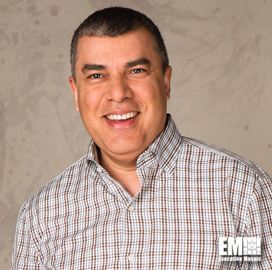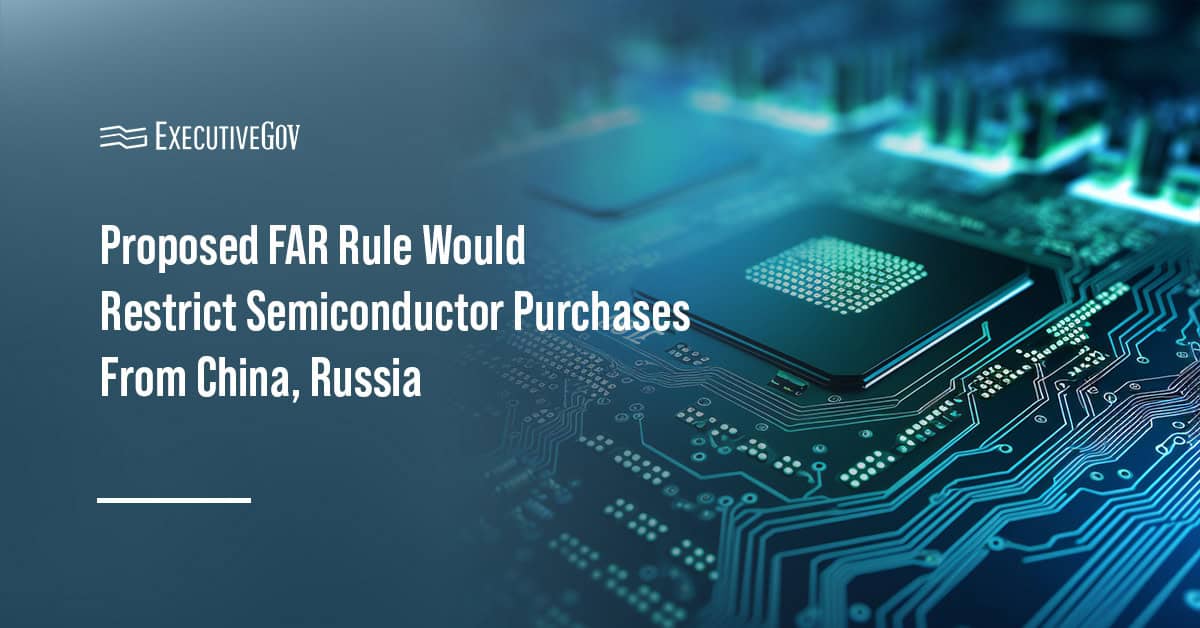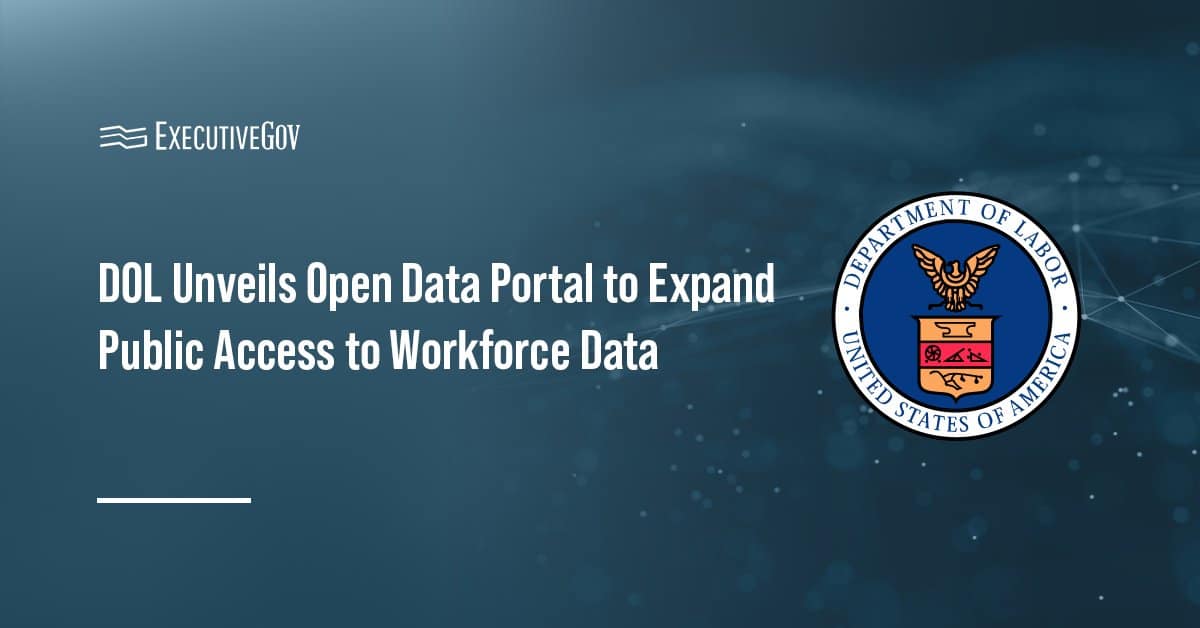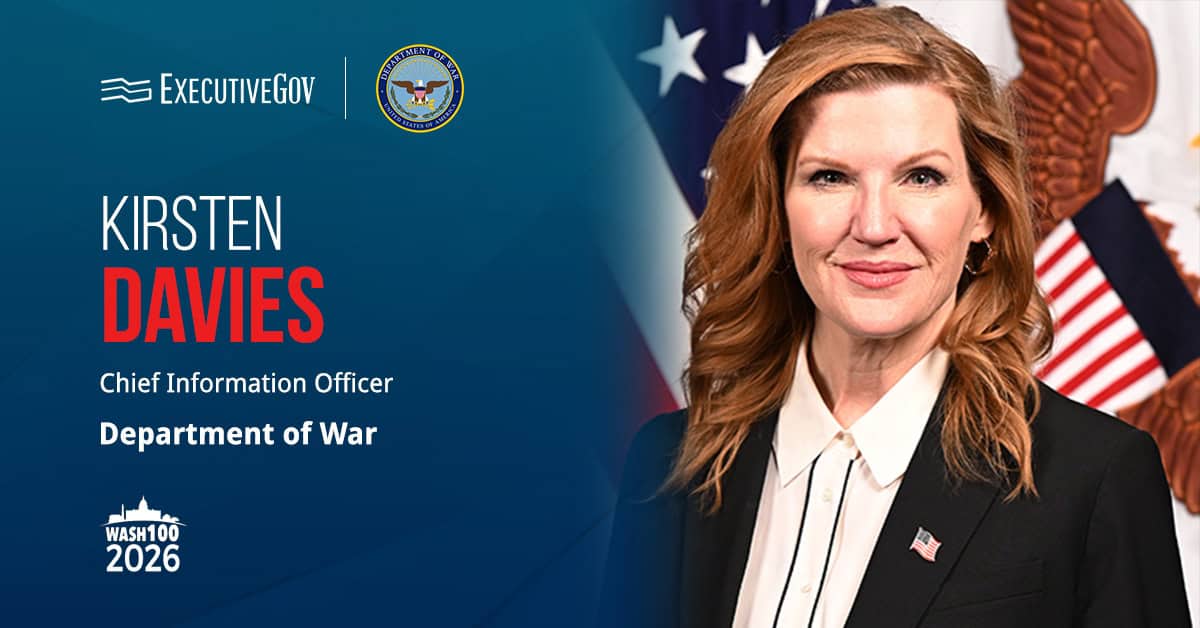Khalid Syed, a senior vice president at Booz Allen Hamilton, recently spoke with ExecutiveGov regarding the latest trends in technology such as AI, 5G, cloud and others in order to drive our federal agencies to stay ahead of innovation and establish the U.S. as THE global leader.
In addition, Syed also discussed how Booz Allen is supporting the Department of Defense’s (DoD) vision for JADC2 as well as his strategic goals for the company’s growth in the coming year and new markets in the federal landscape to keep an eye on during the latest Executive Spotlight interview.
“There are a lot of innovative and clever ways of doing things, but innovation for innovation’s sake often doesn’t get to an operation-relevant solution. Developing a solution a warfighter can use and apply to a mission right away—to me that’s the key missing part. At Booz Allen, we try to marry how we innovate to meet that mission need. And this is not a trivial thing. It’s something you learn from experience.”
You can read the full Executive Spotlight with Khalid Syed below:
ExecutiveGov: Give us a rundown on what you’re focused on these days at Booz Allen. What are your responsibilities and major challenges? Who are your clients?
Khalid Syed: “Over the course of the past 25 years with the firm, I’ve been in pretty much every market and client space, and for the past 10 years, I’ve led our C4ISR business in Aerospace and across Global Defenses.
We have several initiatives and strategies focused on bringing the Booz Allen value proposition to the forefront to help address several pain points where DoD has continued to face challenges: achieving joint command and control and shortening the decision process—through AI, machine learning, and data—from weeks and months to the speed of battle.”
ExecutiveGov: How is Booz Allen supporting the DoD’s JADC2 vision, and what are the challenges and opportunities in that ecosystem?
Khalid Syed: “One big part of Booz Allen’s support of the JADC2 vision involves working with the DoD and all stakeholders to address the challenges: helping the forces achieve interoperability across their disparate, monolithic systems and helping them modernize legacy systems, some of which are beyond their end of life and many that were built for missions and operational needs that have long evolved.
At the same time, we’ve been supporting JADC2 through our vision of a Digital Battlespace. As JADC2 envisions a force that is interconnected and information-advantaged, we’re using emerging technologies (big data analytics, AI, machine learning, augmented reality, edge computing, etc.), open-source architecture, DevSecOps and Agile practices, and modern procurement methods to help the nation’s armed forces and partners meet these goals with flexibility and cost-effectiveness.
In doing so, we’re helping the DoD achieve an integrated digital battlespace where the military drives information to the edge for faster decisions, uses mobile networks to enable independent yet coordinated operations, delivers warfighters’ data for superior knowledge of force locations, and safeguards military intelligence with advanced cybersecurity.”
ExecutiveGov: What are your strategic goals for the coming year? What do you hope to accomplish, and are there any new markets you’re keeping an eye on in the federal sector?
Khalid Syed: “We want to build mission solutions that are open, connected, smart, and to the edge to meet the future challenges of command and control that will enable services to better to connect to one another – and perhaps just as importantly, connect to our allies and coalition partners to be prepared for today’s great power competition.”
ExecutiveGov: With the influence of emerging technologies impacting every aspect of business, how has your company been able to drive digital transformation efforts to stay ahead of innovation in the federal landscape for yourself and your customers?
Khalid Syed: “Booz Allen has been pursuing M&A and partnership strategy for quite some time toward our latest VoLT (Velocity, Leadership, and Technology) strategy, such as the acquisition of EverWatch, a leading provider of advanced solutions to the defense and intelligence communities, Reveal Technology, a visual analytics and edge artificial intelligence (AI) company, and an investment in end-to-end AI Synthetaic.”
ExecutiveGov: How has your team developed its workflow and ability to drive success in such a competitive market, amidst geopolitical volatility and the pandemic?
Khalid Syed: “In March of 2020, I was in Germany for a meeting on Wednesday and the following Monday, everything shut down. Panic hit for about 30 seconds, then our CEO Horacio Rozanski took the approach of “We’re all in this together,” and we extended that approach to everybody we touched in our ecosystem: colleagues, staff, clients, and teammates.
It’s been a huge, huge gamechanger and it’s what helped us pivot the business at a speed and pace we didn’t think was imaginable. We figured out how to keep the mission going in terms of performance, contractual obligations, getting staff safely and securely onsite to work at classified facilities.
It was an indelible experience for all of us, and fundamental to all of it was working on the challenges together, figuring out what works best, failing quickly, and course-correcting along the way, resulting in even stronger client relationships, business outcomes, and team connections.”
ExecutiveGov: With federal agencies working to implement the latest trends in technology such as AI, 5G, cloud, and many others, what are your thoughts on the success and challenges that government agencies are dealing with to stay ahead of innovation to establish the U.S. as THE global leader?
Khalid Syed: “Federal organizations are looking for an easy button: how can I accelerate requirements through innovation? But too often they implement commercial applications with zero DoD relevance.
Innovation done for commercial or business purposes, and not necessarily with the federal or DoD mission in mind, often falls flat in terms of meeting mission needs. Systems developed for commercial applications often just don’t translate.
You spend the same amount of energy, resources, and funding making a system operation-relevant as you do simply engaging with the industrial base to develop something that’s closer to mission needs.
Fortunately, we’re seeing a shift as clients recognize the benefits of the latter approach. Booz Allen brings the ability to get to operational relevance at speed, and we have done that on many, many occasions.”
ExecutiveGov: We often discuss innovation from the technical or capability side. What are some of the unique challenges that you’ve seen on the business side of innovation that hasn’t been addressed or discussed enough?
Khalid Syed: “There are a lot of innovative and clever ways of doing things, but innovation for innovation’s sake often doesn’t get to an operation-relevant solution. Developing a solution a warfighter can use and apply to a mission right away—to me that’s the key missing part.
At Booz Allen, we try to marry how we innovate to meet that mission need. And this is not a trivial thing. It’s something you learn from experience.”
ExecutiveGov: In recent years, what are some of the biggest improvements you’ve seen in the way we talk and think about innovation across the federal sector since the rise of cybersecurity, AI/ML, 5G, and other emerging technologies?
Khalid Syed: “Not only has technology improved and matured quite a bit, but we’re also seeing more expertise, more tradecraft, and more attainable costs, as well as improved adoption. These innovations promise great things.
For example, 5G will enable operation-relevant applications faster than any other generation of wireless. But along with all the promises come challenges, such as security and spectrum co-sharing with 5G.
And we still have a way to go with the maturity of technologies such as AI given we are seeing more learning and automation rather than true AI. Siri is roughly 10.5 years old. Would you trust a 10.5-year-old to run your car—or a battleship or tank?”
ExecutiveGov: What keeps you up at night, in terms of worries and ways to make a difference in the defense sector and America’s position in the world?
Khalid Syed: “What keeps me up at night is how to create value. For example, how can we leverage our nation’s big, broad industrial base for defense and our position in the world, and how can we work with teammates and partners to create differentiated value for our warfighters in a way that is operationally relevant?”





